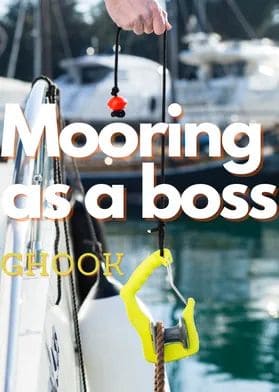Sale of Radio Systems for Yachts and Boats
On this page, we present a catalog of new radios for yachts and boats that you can purchase on our marketplace. Fast delivery, product warranty, and convenient purchasing conditions are available.
If you have questions about choosing a suitable radio, you can contact our staff for professional consultation.
What are Marine Radio Systems for Yachts and Boats
Stationary marine radio systems (onboard radio stations), which the topRik marketplace offers in a wide range in this section, are intended for use on sea vessels as VHF radio communication equipment.
Fixed VHF radios are one of the most important safety equipment on board ships. In coastal areas, stationary marine radio system is the fastest way to communicate with rescue and other services.
Other applications for such equipment include:
- communication with other navigators;
- receiving weather forecasts and warnings;
- on-board communication with crew members (if the equipment supports the intercom function).
All radio stations have the same basic characteristics established by the International Maritime Organization (IMO): 55 international maritime channels, 10 American and Canadian channels for receiving meteorological information, radiation power of 1 and 25 W - and differ mainly in a set of additional functions: the ability to work in intercom mode, the ability to interface with other devices, the presence of a separate DSC standby channel, etc.
Each ship going to sea must have a radio station on board to ensure the safety of the crew and the ship, receive weather and navigation information, communicate with border guards and issue distress signals. On ships, if the volume of internal premises allows, two radio stations are installed - a ship (stationary) and a portable one.
A stationary 25 W radio with an external (remote) antenna provides reliable communication over long distances, while a portable one with a built-in one can be useful in the event of a disaster on a life raft or on a boat, as well as if the main radio or on-board network fails.
Modern ship radios are characterized, first of all, by the presence of a DSC modem (Digital Selective Calling), as well as a set of various functions that expand their capabilities, however, the range of a number of companies also includes simple and inexpensive transceivers without any tricks.
What is Digital Selective Calling (DSC)?
Digital selective calling (DSC) is a type of communication used to initially call ship and coast stations with different priorities for the purpose of further radio communication by radiotelephone or radiotelex. It is an integral part of GMDSS and involves the transmission of short formalized messages presented in encoded form using binary characters in the MF/HF/VHF bands.
Purpose of DSC
Digital Selective Calling (DSC) provides automatic access to coast stations and ships. Alarm information is stored in the DSC receiver and can be displayed or printed once received. A DSC alert always includes the transmitting station ID and a call instruction.
The system operates on VHF, MF/HF frequencies. GMDSS regulations require the use of DSC for distress, urgency and safety alert. Also for everyday use, DSC is a reliable and simple way to establish contact between two marine mobile parties and can be compared to a pager.
DSC is the primary means of attracting attention within the coverage radius. After the initial DSC alert, subsequent communications will be made using radiotelephone on VHF, either radiotelephone (R/T) or Telex (NBDP) on MF or HF.
DSC is based on modern digital communication methods. DSC calls are SELECTIVE, because they can be directed to "All Stations", "Group of Stations", "Geographical Areas" or "Individual Station".
Four priority levels are available in a DSC call.
DSC Priority (Highest to Lowest in Sequence)
- Distress/Distress Relay
- Urgency
- Safety
- Routine
DSC is an integral part of distress alert, relay and acknowledgment. DSC can also be used for emergency and safety messages and for daily routine calls.
Marine Features Radio Systems
The new generation of radios with DSC for small vessels include radios that allow you to operate in digital selective calling mode in the RTSM SC101 DSC format, automatically enter coordinates from a GPS receiver and differ from each other in the set of functions. Some models of this class have a loud notification mode and the ability to receive and relay GPS data.
Radio stations with a wider range of functions are produced for large motor and sailing yachts. Particularly noteworthy is the presence of a large display and a numeric keypad, which allows you to effectively create messages in DSC mode and control the operation of the radio station. Such radio stations can operate in the mode of transmitting, receiving and relaying DSC messages - distress messages, calls and coordinates. Your coordinates can be entered automatically from a GPS receiver or manually. To ensure the confidentiality of telephone conversations, a scrambling (secreting) mode is provided.
The highest class radio stations have the richest range of functions. They are designed for use in unfavorable environments and remain operational not only in high humidity, but also when completely immersed in water. Such devices have a large liquid crystal display with four lines of alphanumeric characters indicating the channel number, coordinates received from the GPS receiver, and other service information. A distinctive feature of such radio stations from others is the presence of a separate receiver for constant monitoring of DSC on channel 70. There is also the ability to connect two control panels and an intercom mode, there is a 30-watt external speaker with listen-back capability and four programmable sound signals (distress signal, siren, fog horn, etc.)
In the topRik marketplace you can buy marine radio systems from the world's largest manufacturers of equipment for boats and yachts: Icom, Garmin, Simrad, Lowrance, Raymarine, Furuno, Cobra, etc., selecting the functions you need and focusing on the planned budget. topRik experts provide a free consultation if you use one of the contact options on this page: quick contact form (Contacts), phone call or email [email protected].
Key Characteristics
Below we have collected in one list the main characteristics for different types of radio systems, based on which you can select marine radio system that will precisely fit your boat or yacht, meeting your radio communication requirements at sea.
Frequency Range
VHF (Very High Frequency): Generally used for short and medium distances. Allows communication with coastal services and other vessels.
HF (High Frequency): Suitable for long distances and international communication.
Transmitter Power
From 25 to 100 watts for large yachts.
From 5 to 25 watts for small boats and vessels.
Functionality
Basic functions: Signal transmission and reception, emergency button.
Additional functions: GPS, Digital Selective Calling (DSC), Automatic Identification System (AIS).
Durability and Reliability
Waterproofing: The radio must be resistant to moisture.
Housing: The material should be corrosion-resistant.
Radios for Long Sea or Ocean Journeys
If you are planning long sea or ocean voyages, the choice of radio should be approached with special care.
HF radios: For international and long-range communication, HF is the best choice.
Powerful transmitter: Models with power ranging from 50 to 100 watts are recommended.
Additional features: GPS and DSC are not just "nice-to-haves"; they can be vital in extreme situations.
Backup power: Make sure your radio can connect to backup power sources.
Radios for River and Lake Boating
If you like spending time on a boat, fishing, or just relaxing on the water, your choice of radio has its own specifics.
VHF radios: For short and medium-distance communication, this is the best choice.
Low power: For small boats and vessels, models with 5 to 25 watts of power are sufficient.
Ease of use: For recreational boating, simplicity and reliability are often more important than an extended set of features.
Recommendations for Choosing a Radio
Determine the required frequency range: Depending on the distance you plan to cover, choose either VHF or HF.
Pay attention to power: More power doesn't always mean better. For small vessels, 25 watts is sufficient.
Functionality: If you plan long voyages, features like GPS and DSC can be very useful.
Check waterproofing standards: IPX7 and IPX8 are good standards for radios.
Budget: Assess the price-quality ratio and choose the best option within your budget.
Considering these factors, choosing a stationary radio for your yacht or boat will become much easier and more reasoned. In addition, it is always useful to consult with experts and read reviews from other users.


